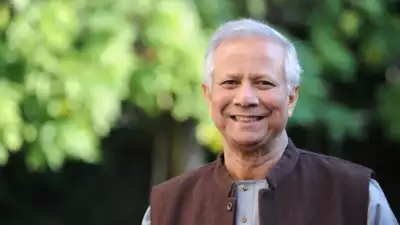Noida 07 August 2024: Nobel laureate Muhammad Yunus has been appointed to lead Bangladesh’s interim government following the resignation and exile of former Prime Minister Sheikh Hasina amid widespread protests. This decision was announced by Joynal Abedin, spokesperson for President Mohammed Shahabuddin, after a crucial meeting that included military leaders and student protest representatives.
Background of the Situation
The political landscape in Bangladesh shifted dramatically after mass protests erupted against Hasina’s government, which had been in power since 2009. The protests, primarily led by students, demanded the dissolution of parliament and free elections. On August 5, Hasina resigned and fled the country, leading to a power vacuum that necessitated the formation of an interim government.
Yunus’s Role and Responsibilities
Muhammad Yunus, known for his pioneering work in microfinance and as a vocal critic of Hasina, has accepted the role of chief advisor to the interim government. He expressed his readiness to lead, stating, “If action is needed in Bangladesh, for my country and for the courage of my people, then I will take it.” His leadership is seen as a response to the student-led protests that called for his appointment, reflecting a desire for a government that aligns more closely with the aspirations of the populace.
Formation of the Interim Government
The interim government’s formation is expected to occur swiftly, with discussions ongoing about its composition. Student leaders have submitted a list of potential members, including prominent figures from various sectors. The military’s involvement in the political transition indicates a delicate balance of power, as they aim to stabilize the situation while addressing the demands of the protesters.
Challenges Ahead
Yunus’s government will face significant challenges, including restoring order after violent protests that resulted in numerous casualties. The military has already taken steps to address security concerns, including the dismissal of the national police chief. The interim government will need to navigate the complex political landscape, rebuild trust with the public, and prepare for free elections, which have been a central demand of the protests.
Historical Context
Yunus’s relationship with Hasina has been contentious, marked by accusations and investigations during her tenure. Despite this, his appointment is seen as a potential turning point for Bangladesh, offering a chance to address the grievances that have fueled unrest. His prior experience with Grameen Bank and his Nobel Peace Prize recognition position him as a figure of hope for many Bangladeshis seeking change.
